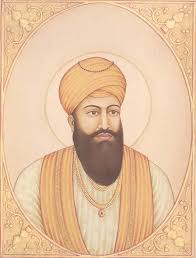Guru Arjan, the fifth Sikh Guru, is one of the most revered figures in Sikhism. He played a pivotal role in shaping the Sikh faith, leaving a profound impact on its spiritual, cultural, and historical development. Guru Arjan is remembered for his literary contributions, dedication to social justice, and ultimate martyrdom for his faith. In this comprehensive overview, we will explore Guru Arjan’s life, his major accomplishments, and his enduring legacy.
Early Life and Background
Guru Arjan was born on April 15, 1563, in Goindval, India. He was the youngest son of Guru Ram Das, the fourth Sikh Guru, and Bibi Bhani. From a young age, he showed great interest in spirituality and was known for his wisdom, humility, and dedication to serving others.
Guru Arjan’s early life was marked by his deep devotion to his faith and his father. He played a significant role in assisting Guru Ram Das in his religious and community activities, learning the values of selfless service and compassion.
Guruship and Major Contributions
Guru Arjan became the fifth Sikh Guru in 1581, following the passing of his father, Guru Ram Das. His tenure as Guru marked a transformative period for Sikhism, as he made several significant contributions to the faith:
- Compilation of the Adi Granth: Guru Arjan is credited with compiling the Adi Granth, the first formal version of the Sikh scriptures. This collection included hymns (shabads) from the previous Sikh Gurus, as well as hymns from other saints and poets from different religious traditions. This monumental work laid the foundation for the Guru Granth Sahib, which would later become the central religious scripture of Sikhism.
- Construction of the Golden Temple: Guru Arjan oversaw the completion of the Harmandir Sahib, also known as the Golden Temple, in Amritsar. He designed the temple to be open on all sides, symbolizing openness and acceptance. The temple became the spiritual center of Sikhism and a place of pilgrimage for Sikhs around the world.
- Social Reforms and Community Initiatives: Guru Arjan was committed to promoting social justice and equality. He continued the tradition of langar (community kitchen), ensuring that everyone, regardless of caste or creed, could eat together. He also established educational institutions and centers of learning.
- Spiritual Poetry: Guru Arjan was a prolific poet and composed many hymns that are included in the Guru Granth Sahib. His poetry is known for its deep spiritual insights, emphasizing devotion to God, humility, and the importance of living a righteous life.
Martyrdom and Legacy
Guru Arjan’s steadfast commitment to his faith and principles ultimately led to his martyrdom. He faced persecution from the Mughal authorities for his refusal to change his religious beliefs and for his growing influence as a spiritual leader.
In 1606, Guru Arjan was arrested on the orders of the Mughal emperor Jahangir. He was subjected to torture and ultimately executed for his refusal to renounce his faith. His martyrdom is considered a turning point in Sikh history, as it marked the beginning of Sikh resistance against religious persecution and injustice.
Guru Arjan’s legacy is multifaceted:
- Literary Legacy: His contributions to the Guru Granth Sahib have had a lasting impact on Sikhism, providing spiritual guidance and inspiration for generations of Sikhs.
- Golden Temple: The Harmandir Sahib remains the holiest shrine in Sikhism and a symbol of Guru Arjan’s vision of a just and inclusive society.
- Martyrdom: Guru Arjan’s martyrdom inspired future Sikh leaders and followers to stand up against oppression and fight for justice.
- Spiritual Teachings: His teachings continue to guide Sikhs in their spiritual journey, emphasizing devotion, humility, and service to others.
Conclusion
Guru Arjan’s life and contributions have left an indelible mark on Sikhism. His dedication to compiling the Adi Granth, constructing the Golden Temple, and promoting social justice has shaped the course of Sikh history. His ultimate sacrifice for his faith is a testament to his courage and commitment to his beliefs. Guru Arjan’s legacy continues to inspire Sikhs worldwide to live according to the principles of their faith and strive for a just and compassionate society.






